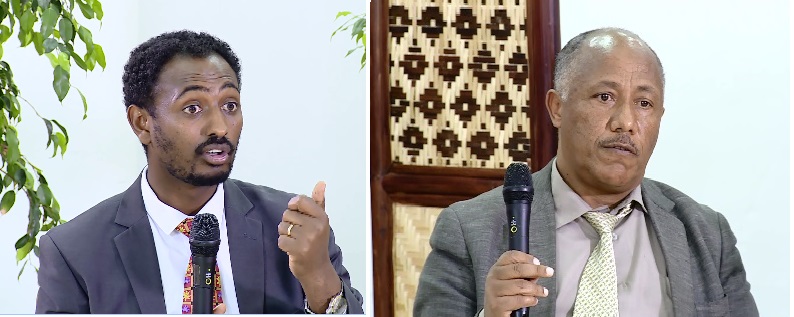Egypt Changing Goalpost to Re-Impose 1959 Colonial Agreement on Upstream Countries, Say Expert - ENA English
Egypt Changing Goalpost to Re-Impose 1959 Colonial Agreement on Upstream Countries, Say Expert

ENA,April 2/2020 Egypt keeps on changing the goalpost of the negotiations on the Grand Ethiopian Renaissance Dam (GERD) with the view of revitalizing the 1959 colonial agreement, members of the Ethiopian negotiating team revealed.
One of the members of the Ethiopian team, Zerihun Abebe told ENA that Egypt has been trying futile tactics to revive their colonial wish over the years.
“They [Egyptians] believe that they can impose their colonial wishes on upstream countries and want to make Ethiopia and other upstream countries their colonies,” he added.
According to him, the only way to get out of this delusion is to negotiate in earnest and spirit of cooperation withthe other basin countries. “Ethiopia’s firm position and belief is that the countries can only get out of such a mess if they return to the negotiations with a spirit of cooperation.”
He stressed that a piecemeal approach will not serve the purpose unless the countries make sure that all riparian countries have equitable and reasonable share.
Stating that the problem is related to water sharing and allocation, Zerihun pointed out that “this starts with the political commitment of the basin countries desire to establish region-wide cooperation as per the Cooperative Framework Agreement.”
Moreover, the countries have to be ready to compromise as it is very important to achieve sustainable development and peace in the region.
“When it comes to GERD, Ethiopia believes again that the solution is negotiation and cooperation, and any approach or attempt to impose ones wishes on others is futile,” Zerihun underscored.
He noted that if drought happens, Egypt and Ethiopia have to face it together as it is natural phenomenon. “Ethiopia will not shoulder the pain alone for Egypt to flourish.”
The other member of the negotiating team, Yilma Sileshi said that Egypt as usual came up with another unacceptable diversionary agenda in the name of drought mitigation.
Egypt once again attempted to use its usual tactic by coming up with issues of drought, prolonged drought, and prolonged dry season in water sharing and against the Cooperative Framework Agreement, he added.
“Drought mitigation is a situation when the average natural flow is less than 49 billion cubic meters. So if you agree on mitigating drought, i.e. 49 billion cubic meters, you are releasing the natural flow and you do not have any right to construct any dam upstream of GERD. So you lose your right,” he elaborated.
This [1959 agreement] is in the strongest terms not acceptable, he stressed, adding that it leaves Ethiopia for “zero water share on the Nile River.”
Ethiopia has been working on the principle of equitable and reasonable utilization of the Nile River waters, while Egypt does not want to share the water, Yilma noted.
“Egypt’s interest is very clear. They want to preserve the existing water use ‘right’ or indirectly the 1959 agreement. This is not working; so they have to change their ways. This situation will leave us with the option to no Nile for mutual benefit.”
He further pointed out that the legal aspect of stating that “any upstream development should not contradict this (1959) agreement” intends to re-impose the colonial agreement.
Affirming that the negotiation among Ethiopia, Sudan and Egypt on GERD has not been terminated, Zerihun and Yilma pointed out that the pending issues should be resolved through series of negotiations, particularly technical.